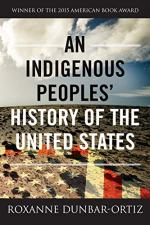
|
Author's Note-Chapter 2
1. What term does Dunbar-Ortiz use for land as a commodity?
(a) Territories.
(b) Freeholds.
(c) Settler plots.
(d) Real estate.
2. What term does Dunbar-Ortiz use for the specific type of colonialism used to form the United States?
(a) Imperialist colonialism.
(b) Settler colonialism.
(c) Exploitation colonialism.
(d) Surrogate colonialism.
3. What is the Latin term for "land without people" (2)?
(a) Terra incognita.
(b) Terra frequens.
(c) Terra nullius.
(d) Terra occupatum.
4. What term, designed to "diffuse the locus of guilt" (4), does Bernard Sheehan use to describe Native-Euro-American relations?
(a) Relational conflict.
(b) Cultural conflict.
(c) Regional conflict.
(d) Interracial conflict.
5. Dunbar-Ortiz describes settler colonialism as a certain type of political policy. What adjective does she use to describe this policy?
(a) Abnormal.
(b) Genocidal.
(c) Consequential.
(d) Imperial.
6. What term refers to the the use of economic and political pressures to control foreign countries?
(a) Expansionism.
(b) Capitalism.
(c) Neocolonialism.
(d) Development.
7. In U.S. settler colonialism, what was the primary commodity?
(a) Horses.
(b) Gold.
(c) Tobacco.
(d) Land.
(read all 180 Multiple Choice Questions and Answers)
|
This section contains 4,088 words (approx. 14 pages at 300 words per page) |

|




